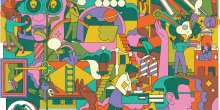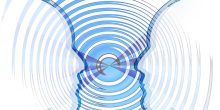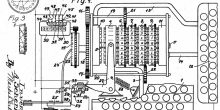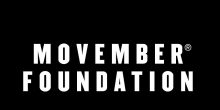Almost one year ago the Minister of Education, Culture, and Science Robbert Dijkgraaf announced that a national center for science communication (NEWS) will be founded.
Beginning of this week Ionica Smeets and Alex Verkade presented their report (for the English version, the Dutch version can be found here). This is amazing news! My social media was filled with positive updates and posts. Such a national center for science communication will stimulate collaborations and will help new initiatives learn from previous endeavors. I urge you to have a look at the report, it is very inspiring.

Front page of the report of Ionica Smeets and Alex Verkade on NEWS
From a press release of the ministry from last year we read
"Involving people in scientific process
In his lecture 'When knowledge becomes critical' (in Dutch) in Leiden in March 2022, Minister Dijkgraaf discussed the importance of science communication. He emphasized that it can engage people and provide insight into the scientific process. In this way, science communication contributes to increasing confidence in science.
He sketched a 'scissor movement', with the growing influence of science on our daily lives on the one hand and growing misunderstanding about that science on the other. “If we want more people to understand how important it is to increase knowledge, then we need to narrow the gap between science and society (..) The task for science is to become more visible and accessible.”
I immediately dived into the report to see how this initiative will take concrete shape! In the report, it is immediately clear what the vision of NEWS (short for Nationaal Expertisecentrum Wetenschap & Samenleving) will be. Namely, to create and stimulate dialogue between the scientific community and society, aiming at public engagement in the process of doing science. Secondly, to structurally endorse contact and collaboration between various scientific initiatives in the Netherlands.
An independent center
This national center of science communication will have an independent position towards the ministry, and the various educational and research institutes. Of course, educational and research institutes play a major role in communicating scientific discoveries, more and more educational programs start offering courses on science communication and are involved in initiatives to bring science across to broader audiences and to society.
But, as the authors mention in the report, activities organized by universities and research institutes often solely aim at attracting more students. On one hand I understand it that various programs want to attract as many students as possible, but I also strongly believe that activities solely aiming at promoting science should be organized and endorsed. Such initiatives do exist, but from my experience sometimes feel the pressure of not fitting into outreach agendas.
For example, some years ago we realized that most of the masterclasses and events organized for high school students in the Netherlands are in Dutch. This is totally understandable, but in the Netherlands, there are also many international schools where non-Dutch-speaking students go. These students also deserve access to such educational activities. This was the inspiration back then to organize the masterclass NETWORKS goes to school.
Mathematics Communication
What is our role as a mathematics community in such an initiative? Public engagement and communication of mathematics is growing, there are so many nice initiatives which are out there. See Quanta Magazine, IMAGINAY, Youtube channels like 3blue1brown and Numberphile, and in my opinion, also the Network Pages and the Dutch magazine Nieuw Archief voor Wiskunde, to honor our work and efforts. I also mention Nieuw Archief voor Wiskunde because I personally love it and am part of it.
In the report you can read the following
"Science communication is a two-way interaction between researchers and society about processes, results, and consequences of scientific research. Science communication is important in a society in which science plays a major role."
And a little further
"At present, the majority of science communication activities are still one-way traffic. If we want to work on mutual trust, more interaction is needed and we have to enter into dialogue more often as equals. Scientists not only share their scientific knowledge, but also listen to other forms of knowledge, such as that from professional practice and lived experiences."
When I read this I immediately thought of the Network Pages and Nieuw Archief voor Wiskunde, where communication is mostly one-way. Of course, we receive a lot of input from readers and contributors but we don't engage in a direct dialogue. In this sense, we are sending information, ideas, and experience to our readers. But I want to think about both initiatives from a different perspective, we try to create and maintain a sense of a local community experimenting with writing and communicating our research.
We, as a small mathematics community doing research on networks and algorithms, try to create writing styles and methods, think of animations or videos, to communicate mathematical results. We want to show the beauty of doing mathematics and of being a researcher. In many news-websites mathematics is presented only when some application is concerned, but there is more to it. Mathematics is a beautiful discipline, and we as mathematicians should experiment and develop new communication techniques to show society how amazing it is to do mathematics.






